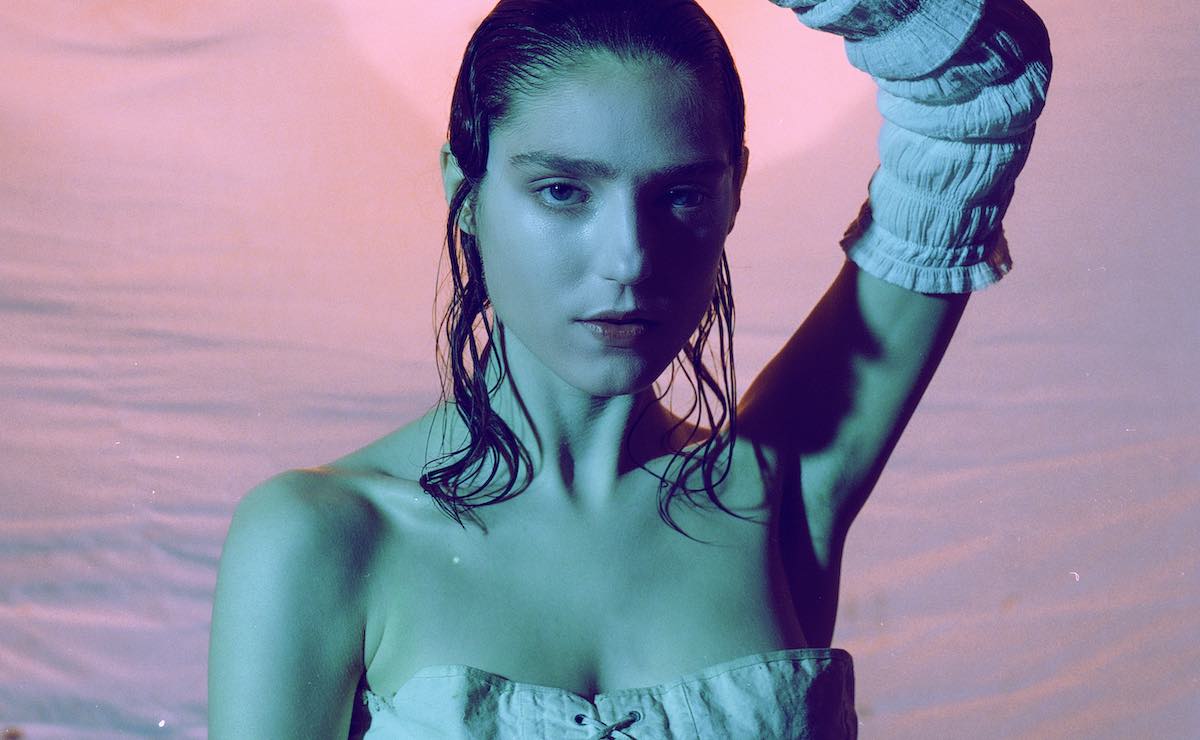
After the release of her latest music video for her single “Paradise Calling,” directed by Max McLachlan, U.K. singer-songwriter Birdy announced her upcoming U.S. tour dates set for this October. She also announced back in March that her highly-anticipated new album, Portraits, is set to release Aug. 18.
To further learn more about her upcoming album, she sat down with Variance’s Ethan Ijumba to discuss the album’s composition, her feelings about the record, and the direction that she’s taking musically. Be sure to scroll below to read their full conversation, as well as follow Birdy on Instagram and TikTok for more updates.
Ethan: Alright, so first and foremost, how’ve you been doing? How's your summer? And how's just everything been so far?
Birdy: I'm good, thank you. I've had a pretty busy summer. So far, I’ve just been preparing for the record to come out, and I've been playing these record store shows, which has been nice, so I've been enjoying going around the country and meeting new people.
E: Congrats on that and to you as well because your upcoming record “Portraits” marks album number five, and this is exactly 12 years since your self-titled debut album that you’ve released from your “Skinny Love” cover and “Not About Angels”? But how does it feel to be on album number five at this point in your career?
B: It's really strange looking back; it's quite blurry because a lot has happened in that time. I feel like I’m in a really good place on this record; I felt very confident, understood myself a lot more, and settled within myself and my music. I've come a long way since that first record, but it's nice to have had that experience at my current age.
E: So before we deepen into talking about your upcoming album, Portraits, and by the way, it's a phenomenal project. This is one of your best works, along with the others. But that being said, when it comes down to your discography. I've noticed you've never had a feature verse or a collaboration on your tracks. Is there any specific reason why you've never gone in that direction?
B: It's kind of bad planning on my part, which is the main reason. That's something I regret on this album, and I wish I’d done something like that. There are so many people I would love to work with, and it's always because I'm in such a panic trying to get stuff done, and then I don't think of it till the last minute because I've been so focused on finishing stuff. But I think there's always room to do collaborations as well; one person I would have loved to have done something with is ANOHNI from Anohni and the Johnsons. She's such a beautiful artist, and I'm still hoping that might happen one day.
E: Yeah, it’s a curse where we all have the same 24 hours, 365 days, and seven days a week, yet time gets away. Aside from that, regarding this record Portraits, you stated that this is the most reflective and emotional record and that you had fun making this one apart from your others. Was there a specific song that you created that specifically was your favorite to make where lyrically everything came out easily regarding the composition process?
B: So “I Wish I Was A Shooting Star” is my favorite from the record, and that one just came out easily, which is so nice when that happens. When I flew to Nashville to work with Gabe Simon, I recorded a few other songs with him. He finds ways to get me to tell stories about what's going on in my life, and he's really good at pulling out things from stuff I say and things that I might overlook, and he'll get inspired by little bits. But that song is about someone who felt like the world was against them, felt invisible, and just wanted to break through and be heard. It was their dream just to be acknowledged, so it was fun to make that feeling happen on a song, and sonically it was inspired by David Bowie and the Pixies. So I wanted it to feel like a star going up into space like a rocket, and I really enjoyed making it.
E: I wanted to comment on that because it embodies and captures Bowie's influence, especially on the build-up where it's just you vocalizing and how it came with the overall lyrics of a vulnerable way to see another side of how you feel. That said, the other songs you had composed for this album, such as “Battlefield,” “Your Arms,” and “Tears Don't Fall.” They all put a focal point on the emotional aspect of the album when it came to that composition process. How did it feel and come about to take the reflective moments you had before and turn them into lyrics?
B: The emotional songs are the ones that actually come the most naturally to me. Writing a sad song is where I feel most comfortable, and some of them, like “Your Arms,” was about someone very close to me I love who was going through something. But I found it harder on “Paradise Calling” because I wanted to write something I felt the record was missing. It was a challenge for me on this record because lyrically, I find it difficult to write anything that feels happy or just too sweet is cheesy. I was already out of my comfort zone in it just being an up-tempo song. So I went over and over with the lyrics and just kept it simple, which was the best thing and what I wanted it to be. I tried to overcomplicate it for a while, but it was simple in the end.

E: So to further speak on stepping out of your comfort zone, on this album, the production on it sonically differs from anything you’ve released previously. When it came down to finding that balance between the elements that you were influenced by, it was a lot of new wave, synth-pop, and some electro-pop, but you still maintained and kept that true emotionally bare and stripped vocals. What was it like to incorporate these new sounds into this new experience? And what was the influence on why you took this new direction? Was it just something you felt like it was time for something new? Did you feel that this was a sign that you wanted other people to see another side of you musically?
B: It was definitely a bit of that just from making the previous record, which was just such a painful process because it was about heartbreak. It was just very intimate and intense making that record, and I found it hard to let go of it. It went on for five years, so at the end of it, I was like, I just can't write another song that's in that place or another sad song like that. After I got over whatever I was going through, I wanted to do the opposite of that and have fun with it, and it would be a much lighter process which I enjoyed because I didn't allow myself to on the previous record.
E: So when it comes down to that process aspect, do you keep the same techniques when it comes to how you go about the composition of a song, or do you have a specific method that comes for you to create the songs you make? Is there anything you do specifically or did differently for this album?
B: I tried not to write when I wasn't inspired because I've done that in the past, where I've pushed myself when I didn't feel like there was anything there and I didn't have anything to write about. To me, that doesn't make good songs, it's always a struggle to finish them, and it's never a complete story when I do that. So yeah, I just tried waiting for that feeling to be there and inspired. That helped a lot, and working with a small group of people who understood the world I was trying to create was nice. It made me feel more relaxed because so often you kind of just work with one person, and then you never see them again, which is kind of strange to share a piece of your life, and there's so much that goes into writing a song, so it was nice to build relationships doing it.
E: To further speak on that, you mentioned that on this album, you put more of your own personal production into this. Was it just you and Gabe Simon, or were there other producers you had in the sessions?
B: No, there were a few on the record. There's Ed Carlile, Anya Jones, and Mark Crew; sometimes, they swap between working with them.
E: Do you feel that when working with other individuals, is there ever a point where it makes you feel that when you put your personal touch into it, it's hard to find the lines between what the team thinks and what you think?
B: It varies; sometimes, you bump heads a bit and fight for how I feel, and sometimes I'm wrong, and I'm fighting when I shouldn't be. It's just learning when to trust someone else and what's nice about building relationships with people. You get to know them and have that trust, but I had a strong vision for a lot of this, and it was nice to have the opportunity to explore that and work with people where we were on the same page with the people I was working with. But sometimes, if something weren't right, I would just go home, and I would just make a version of the song by myself on logic and just like to try and explain what I meant that way because I'm not always good with my words and I kind of need just to show people what I mean.
E: Honestly, that's probably a better way to do it. It's like in your sense, like if I can't say what I mean, then let me just show you exactly what it is on to the recording.
B: Exactly.
E: With that being said, is there a song you've released that you wish had gotten more attention or deserved more recognition? Something that you feel that people have slept on?
B: It's funny because my favorites are always the ones that people like the least, yet it's always my favorite. Or someone very similar to me will like it, but the majority of people don't always love the ones that I think they're going to. On the last record, we didn't get to tour it or promote it properly, but there are definitely a few ballads on there that I would have loved to have been able to perform more. A song called “Evergreen” was my favorite on that record, but I've never really even got to play it live because it was never a focal song, but it's my favorite one.
E: So when it comes down to this record, every artist wants listeners and audiences to receive it well. For you personally, is there anything you want people to touch on or embrace from this record? What do you want people to take away from it? And also, what do you want yourself to take away from it after everything you've gone through, making it, releasing it, performing it?
B: I felt like I was on a mission on this record. I felt like I was breaking through something where I've been exorcising a ghost or something. Kind of proving that I could make something that maybe is commercial but in an authentic way, and something that I was very in control of because there was a lot of pressure on the previous record to do something like that, and I just wasn't in a place where I wanted to do it. So this record was quite empowering for me to be in control of that process and to do it because I wanted to do it. So I guess that feeling of empowerment and peacefulness is what I take from the record, and, I hope other people feel that.
E: Are you excited, scared, or have any specific feelings about the release of this record?
B: I feel like since there are quite a few of the songs out now, I feel like people have a feel of what it will be like. So this is not so much of that feeling of anxiousness because it's already out there. I feel a little nervous, but it was finished a long time ago, and it's been what I've been living with it for a long time already. But yeah, I'm excited for people to hear “I Wish I Was A Shooting Star” and the bits that haven't been revealed yet.
E: That makes sense, and once we all hear the entire project, from your previous and your production of what you want. It shows growth, development, and just your evolution as an artist. It captures what you can do as an artist regarding your vocal capabilities. It also proves that you are more than just the stereotypical sad girl playlist or even just the girl who makes music to cry to. Not only are you showcasing a lot more range that people haven’t seen from you, but it’s something that they need to see.












